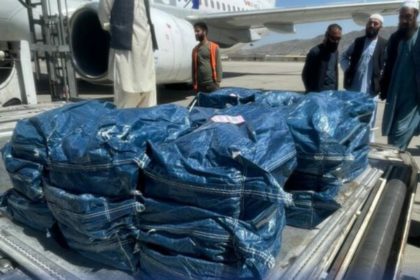RASC News Agency: The Taliban’s Ministry of Justice has announced that approximately 95 percent of its new legal framework purportedly tailored to reflect the group’s theocratic vision has been finalized. The statement was issued by Abdul Hakim Sharai, the Taliban’s acting Minister of Justice, during a meeting with Norway’s charge d’affaires and head of Afghan affairs in Islamabad earlier this week. According to Sharai, the new body of law is being crafted entirely on the basis of the group’s interpretation of Islamic principles, drawing from what the Taliban consider “authentic sources” including the Qur’an, the Sunnah (Prophetic tradition), and the Hanafi school of jurisprudence. The drafting process is reportedly overseen by a select group of clerics and legal experts who operate under the direct supervision of the Taliban’s Ministry of Justice. The final version of the code, as per the minister, will be subject to ratification by the group’s reclusive supreme leader, Mullah Hibatullah Akhundzada.
While the Taliban present this development as a step toward “Islamic governance,” legal experts and human rights advocates warn that the move represents a grave institutionalization of religious authoritarianism, further dismantling Afghanistan’s already devastated legal and civic institutions. Under the Taliban’s opaque and unaccountable rule, the notion of justice has become synonymous with ideological enforcement rather than rule of law. The regime’s claim to be building a “moral legal system” obscures its systematic use of the judiciary to suppress dissent, curtail basic freedoms, and entrench gender-based oppression.
Sharai explicitly stated that the new code is intended to purge Afghanistan’s legal system of what he termed “Western cultural influence,” framing the group’s efforts as a corrective to two decades of constitutional reforms and international engagement. Laws from previous administrations many of which had provided crucial protections for women, minorities, and civil liberties are to be repealed if deemed incompatible with the Taliban’s interpretation of Islam. In a deeply concerning development, the minister also admitted to rejecting past proposals for limited judicial reforms from bodies such as Afghanistan’s Supreme Court and the previous Ministry of Justice, describing them as “unacceptable” and rooted in foreign ideologies. By doing so, the Taliban have not only abandoned legal pluralism, but have actively suppressed internal calls for moderation and modernization.
This unilateral restructuring of the justice system is emblematic of a broader pattern of repression. Since seizing power in August 2021, the Taliban have consistently issued arbitrary decrees, shuttered independent courts, and silenced legal professionals. Afghanistan has been transformed into a legal black hole, where accountability is absent, due process is irrelevant, and punishment is often public, brutal, and unreviewable. Moreover, the Taliban’s assertion that the Norwegian diplomat emphasized expanding ties between Norway and the Taliban raises questions over the group’s manipulation of diplomatic engagements for political legitimacy. Norway, like many Western states, has consistently stated that recognition of the Taliban depends on concrete improvements in human rights, especially women’s rights none of which have materialized.
The implications of a Taliban-authored legal system are deeply troubling: codified gender apartheid, state-sanctioned discrimination against ethnic minorities, criminalization of media and speech, and the normalization of medieval punishments are not merely possible they are already observable in the Taliban’s current practice. The group’s claim that it is finalizing its legal code must therefore be understood not as a technical milestone, but as a milestone in the entrenchment of a repressive, theocratic regime that seeks total control over the lives, bodies, and minds of Afghanistan’s people.
Without international pressure, particularly from Islamic countries and institutions, the Taliban will continue to exploit the language of religion to impose a system of governance utterly incompatible with fundamental rights, modern jurisprudence, and the aspirations of the Afghanistani people.






